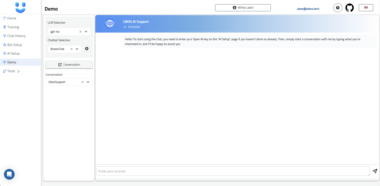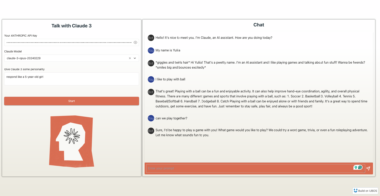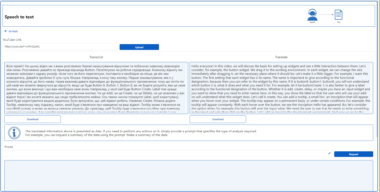Database MCP Server
A Model Context Protocol (MCP) server that provides tools for connecting to and interacting with various database systems.
Features
- Multi-Database Support: Connect to SQLite, PostgreSQL, MySQL/MariaDB, and SQL Server databases
- Unified Interface: Common tools for database operations across all supported database types
- Database-Specific Extensions: Where needed, specific tools for database-specific features
- Schema Management: Create, alter, and drop tables and indexes
- Query Execution: Execute raw SQL queries or use structured query tools
- Transaction Support: Begin, commit, and rollback transactions
Installation
Prerequisites
- Python 3.8 or higher
- Required Python packages (installed automatically with pip):
- SQLAlchemy
- Various database drivers, depending on which databases you want to use:
- SQLite (included with Python)
- PostgreSQL:
psycopg2-binary - MySQL/MariaDB:
mysql-connector-python - SQL Server:
pyodbc
Installing from Source
# Clone the repository
git clone <repository-url>
# Install the package
pip install -e .
Configuration
The server can be configured using environment variables, a configuration file, or by providing connection details at runtime.
Environment Variables
DB_CONFIG_PATH: Path to a JSON configuration fileDB_CONNECTIONS: A comma-separated list of connection IDs or a JSON string with connection details
Configuration File Format
{
"connections": {
"sqlite_conn": {
"type": "sqlite",
"db_path": "/path/to/database.db"
},
"postgres_conn": {
"type": "postgres",
"host": "localhost",
"port": 5432,
"database": "mydatabase",
"user": "myuser",
"password": "mypassword"
}
}
}
Usage
Running the Server
As an MCP Server for Claude
# Run with default settings
python -m db_mcp_server
# Specify a configuration file
python -m db_mcp_server --config /path/to/config.json
# Set logging level
python -m db_mcp_server --log-level DEBUG
As a Standalone Web Server (for any LLM)
# Run as a web server
python -m db_mcp_server.web_server
# Specify host and port
python -m db_mcp_server.web_server --host 0.0.0.0 --port 8000
# Specify configuration file and logging level
python -m db_mcp_server.web_server --config /path/to/config.json --log-level DEBUG
Available MCP Tools
Connection Management
add_connection: Add a new database connectiontest_connection: Test a database connectionlist_connections: List all database connectionsremove_connection: Remove a database connection
Query Execution
execute_query: Execute a SQL queryget_records: Get records from a tableinsert_record: Insert a record into a tableupdate_record: Update records in a tabledelete_record: Delete records from a table
Schema Management
list_tables: List all tables in a databaseget_table_schema: Get the schema for a tablecreate_table: Create a new tabledrop_table: Drop a tablecreate_index: Create an index on a tabledrop_index: Drop an indexalter_table: Alter a table structure
Transaction Management
begin_transaction: Begin a transactioncommit_transaction: Commit a transactionrollback_transaction: Rollback a transaction
Examples
Add a Connection
{
"connection_id": "my_sqlite_db",
"type": "sqlite",
"db_path": "/path/to/database.db"
}
Execute a Query
{
"connection_id": "my_sqlite_db",
"query": "SELECT * FROM users WHERE age > ?",
"params": [21]
}
Create a Table
{
"connection_id": "my_sqlite_db",
"table": "users",
"columns": [
{
"name": "id",
"type": "INTEGER",
"primary_key": true,
"nullable": false
},
{
"name": "name",
"type": "TEXT",
"nullable": false
},
{
"name": "email",
"type": "TEXT",
"nullable": true
}
]
}
Insert Records
{
"connection_id": "my_sqlite_db",
"table": "users",
"data": {
"name": "John Doe",
"email": "john@example.com"
}
}
Development
Running Tests
# Run all tests
python -m unittest discover
# Run specific test file
python -m unittest tests.test_sqlite
Connecting from Other LLMs
When running as a standalone web server, other LLMs (like Llama 3) can connect to the database MCP server via HTTP. The server exposes the following endpoints:
Endpoints
/list_tools- GET or POST: Returns a list of all available tools with their descriptions and input schemas/call_tool- POST: Execute a specific database tool
Example: Calling from Another LLM
To use this server with another LLM, have the LLM generate HTTP requests to the server. Here’s an example of how you could structure the prompt for an LLM like Llama 3:
You can interact with a database by making HTTP requests to a database service at http://localhost:8000.
The service provides the following endpoints:
1. To get a list of available tools:
Make a POST request to: http://localhost:8000/list_tools
2. To execute a database tool:
Make a POST request to: http://localhost:8000/call_tool
with a JSON body like:
{
"name": "tool_name",
"arguments": {
"param1": "value1",
"param2": "value2"
}
}
For example, to execute a SQL query, you would make a request like:
POST http://localhost:8000/call_tool
Content-Type: application/json
{
"name": "execute_query",
"arguments": {
"connection_id": "my_db",
"query": "SELECT * FROM users"
}
}
Sample Python Code for Client Integration
import requests
import json
# Base URL of the database MCP server
BASE_URL = "http://localhost:8000"
# List available tools
def list_tools():
response = requests.post(f"{BASE_URL}/list_tools")
return response.json()
# Execute a database tool
def call_tool(tool_name, arguments):
payload = {
"name": tool_name,
"arguments": arguments
}
response = requests.post(f"{BASE_URL}/call_tool", json=payload)
return response.json()
# Example: List tables in a database
def list_tables(connection_id):
return call_tool("list_tables", {"connection_id": connection_id})
# Example: Execute a SQL query
def execute_query(connection_id, query, params=None):
return call_tool("execute_query", {
"connection_id": connection_id,
"query": query,
"params": params
})
# Example: Add a new connection
def add_connection(connection_id, db_type, **kwargs):
args = {"connection_id": connection_id, "type": db_type}
args.update(kwargs)
return call_tool("add_connection", args)
License
Database MCP Server
Project Details
- georgi-terziyski/database_mcp_server
- Last Updated: 3/18/2025
Recomended MCP Servers

A flexible HTTP fetching Model Context Protocol server.

Essential MCP to ATC (Awesome Tool Collection) Python Bridge

An MCP server for FFmpeg

Antrophics Model context protocol to edit powerpoint files



Model Context Protocol (MCP) server implementation using Google OR-Tools for constraint solving



MCP-BOS: 模块化、可扩展的Model Context Protocol服务器框架 使用基于约定的自动模块发现机制,为Claude Desktop打造的灵活MCP服务器框架。通过简洁的模块接口和声明式配置,轻松扩展AI应用功能,无需修改核心代码。支持FastMCP标准,包含完整工具、资源和提示模板注册能力。


MCP
 From vibe coding to vibe deployment. UBOS MCP turns ideas into infra with one message.
From vibe coding to vibe deployment. UBOS MCP turns ideas into infra with one message.





